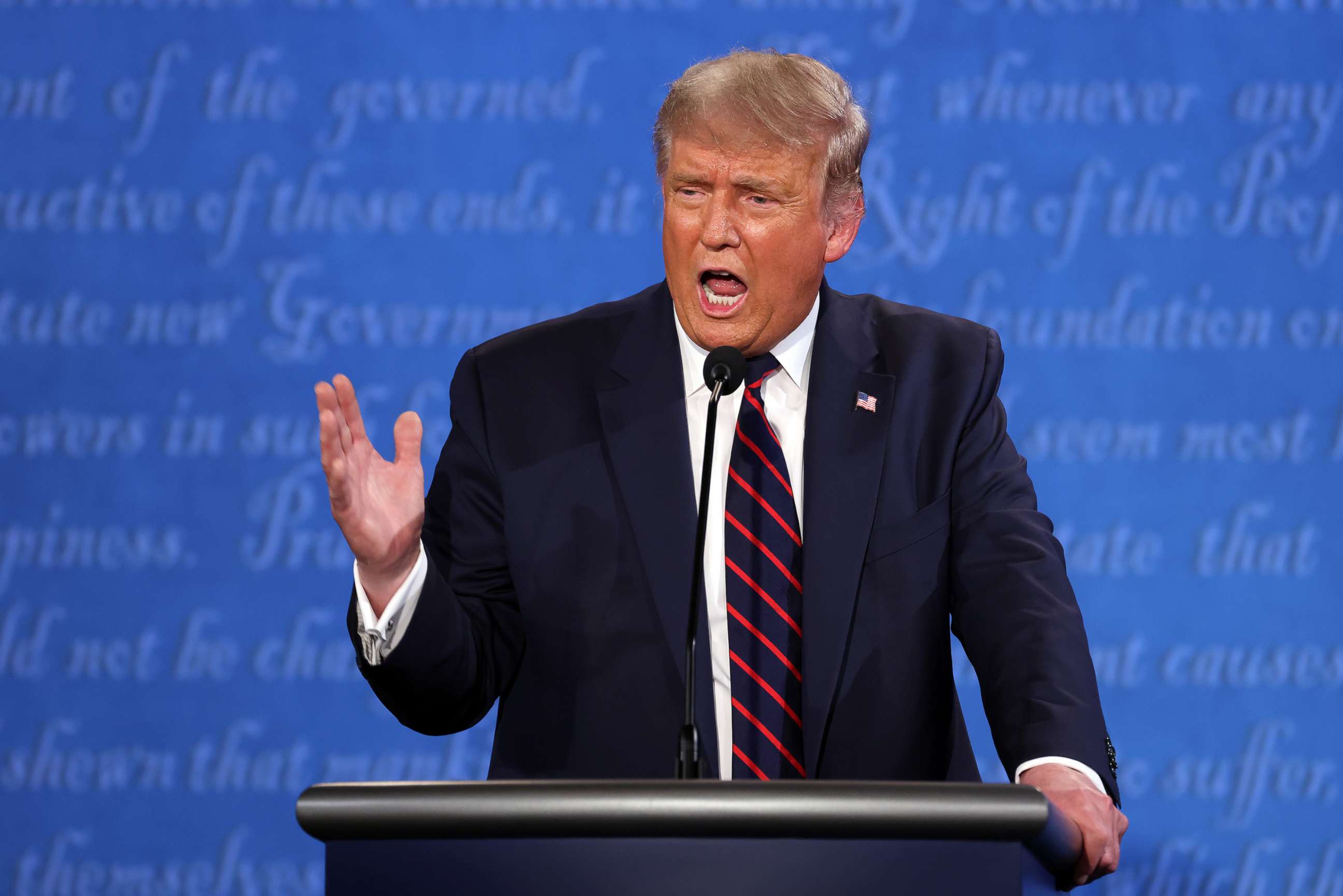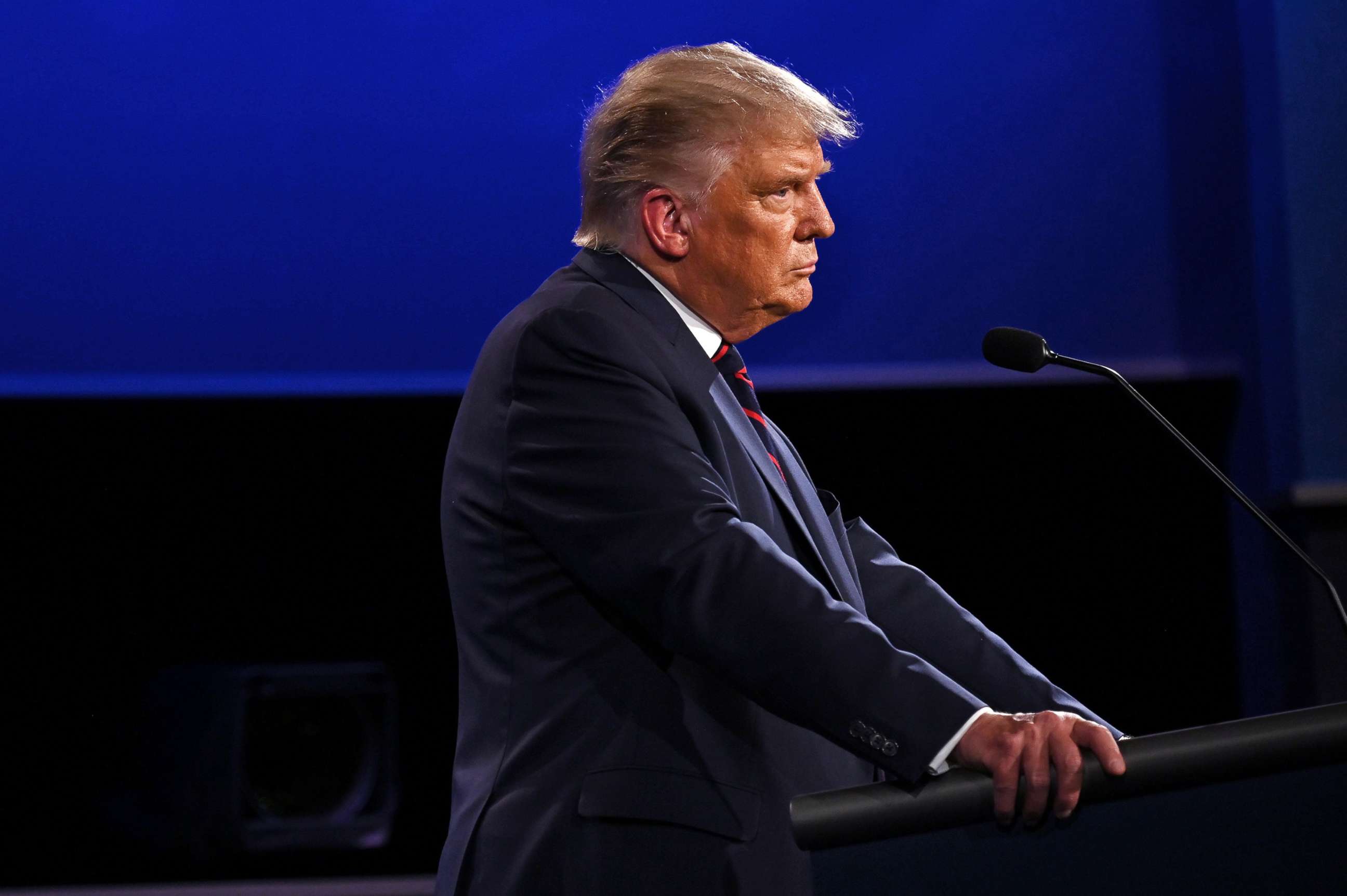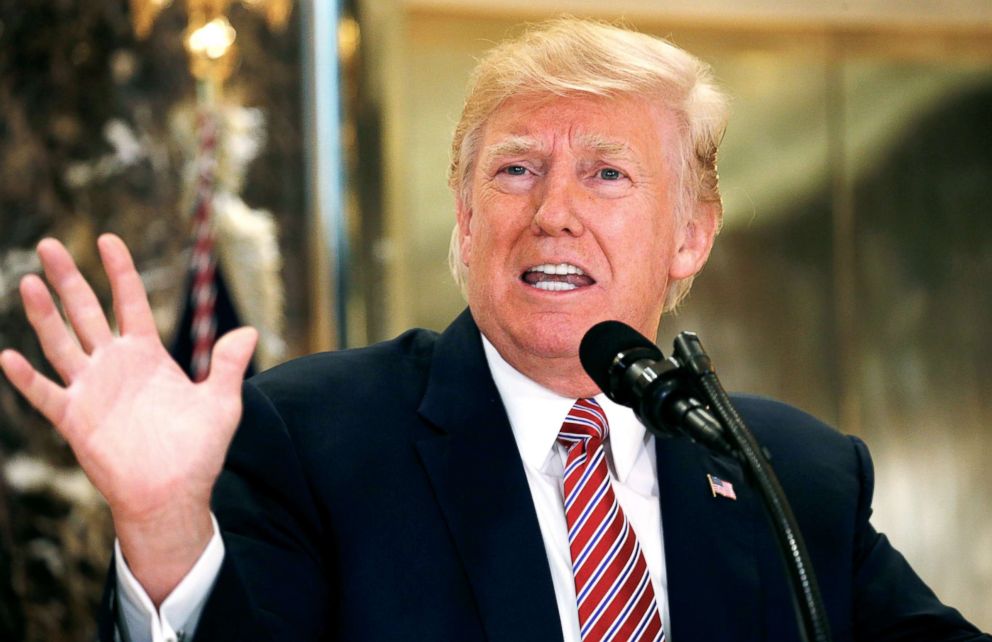Trump's failure to condemn white supremacy at debate part of well-established pattern
The debate was not the first time Trump has failed to condemn white supremacy.
President Donald Trump's failure to categorically and clearly condemn white supremacists at Tuesday night's debate is part of a well-established pattern in which the president has shown reluctance to disavow radical and racist groups and ideologies.
Asked by Fox News' Chris Wallace, the moderator at Tuesday's debate, whether he was "willing to condemn white supremacists and militia groups and to say that they need to stand down and not add to the violence," the president at first said, "Sure, I'm willing to do that."
"Then do it, sir," Wallace went on to say, prodding the president for a direct and specific denouncement of the groups blamed, in part, for recent violence in cities like Portland. Biden interjected, "Do it. Say it."
But Trump didn't, instead countering, “Almost everything I see is from the left wing, not from the right wing. I'm willing to do anything. I want to see peace."

When Wallace pressed him, the president asked, "What do you want to call them? Give me a name, give me a name, go ahead — who would you like me to condemn?
“White supremacists and right-wing militias,” Wallace said, as Biden interjected the name "Proud Boys."
"Proud Boys, stand back and stand by," Trump then replied, in what appeared to be a reference to a far-right group. "But I'll tell you what, somebody has got to do something about antifa and the left because this is not a right-wing problem, this is a left-wing problem."
The Proud Boys describe themselves as "a pro-Western fraternal organization for men," according to the New York Times, and have denied they are part of the “alt-right."
The Anti-Defamation League describes the group's ideology as "Misogynistic, Islamophobic, transphobic and anti-immigration" and says "some members espouse white supremacist and anti-Semitic ideologies." The primary organizer of the Unite The Right rally in Charlottesville, Virginia -- where one counter-protester was killed -- in 2017 was a former Proud Boys member, according to the Anti-Defamation League.
The Proud Boys reportedly have denied links to violence or white supremacist views in the past.
For all the shock value of the president's failure to condemn on Tuesday night's debate stage, it was just the latest in a series of episodes in which the president has entertained racist notions and demurred in condemning radical and racist groups.
Years before his unlikely presidential bid, the president began to get attention on the national political scene as far back as 2011 when he began peddling an unfounded birther conspiracy, questioning whether former President Barack Obama was in fact born in the United States.
The president has still never truly disavowed his promotion of that racist conspiracy theory.

As a candidate in 2016, when white nationalists and former Ku Klux Klan leader David Duke endorsed the president's bid for the White House, then-candidate Trump did not immediately disavow the support.
And when he did, it was only reluctantly and in direct response to a reporter who asked him about the endorsement at a press conference.
"David Duke endorsed me? Okay, all right. I disavow, okay?" Trump said, offering a snippy, half-hearted repudiation.
When neo-Nazis marched with Tiki torches in Charlottesville chanting "Jews will not replace us" in the first year of his presidency, Trump failed to call them out in his first statement reacting to the events.
Instead, Trump famously equivocated and said he condemned the violence "on many sides."

Trump's reluctance to clearly condemn the racist marchers led to a torrent of criticism across the political spectrum.
Two days after his initial statement, the president bowed to pressure from his staff to read a second statement off the Teleprompter that did condemn the white supremacist.
"Racism is evil," he said. "And those who cause violence in its name are criminals and thugs, including the KKK, neo-Nazis, white supremacists, and other hate groups that are repugnant to everything we hold dear as Americans."
After making the clear condemnation, the president regretted it almost immediately -- blaming his staff for making him do it and telling them, "That's the last time I do that."
The very next day after making the carefully crafted statement, the president was back to drawing a moral equivalency between the neo-Nazi protesters and those who came out to counter-protest.
"You also had people that were very fine people, on both sides," Trump famously said during an impromptu press conference in the lobby of Trump Tower.
And on Tuesday, the president repeated his pattern of not outright condemning white supremacists and their views -- this time on the national debate stage.




